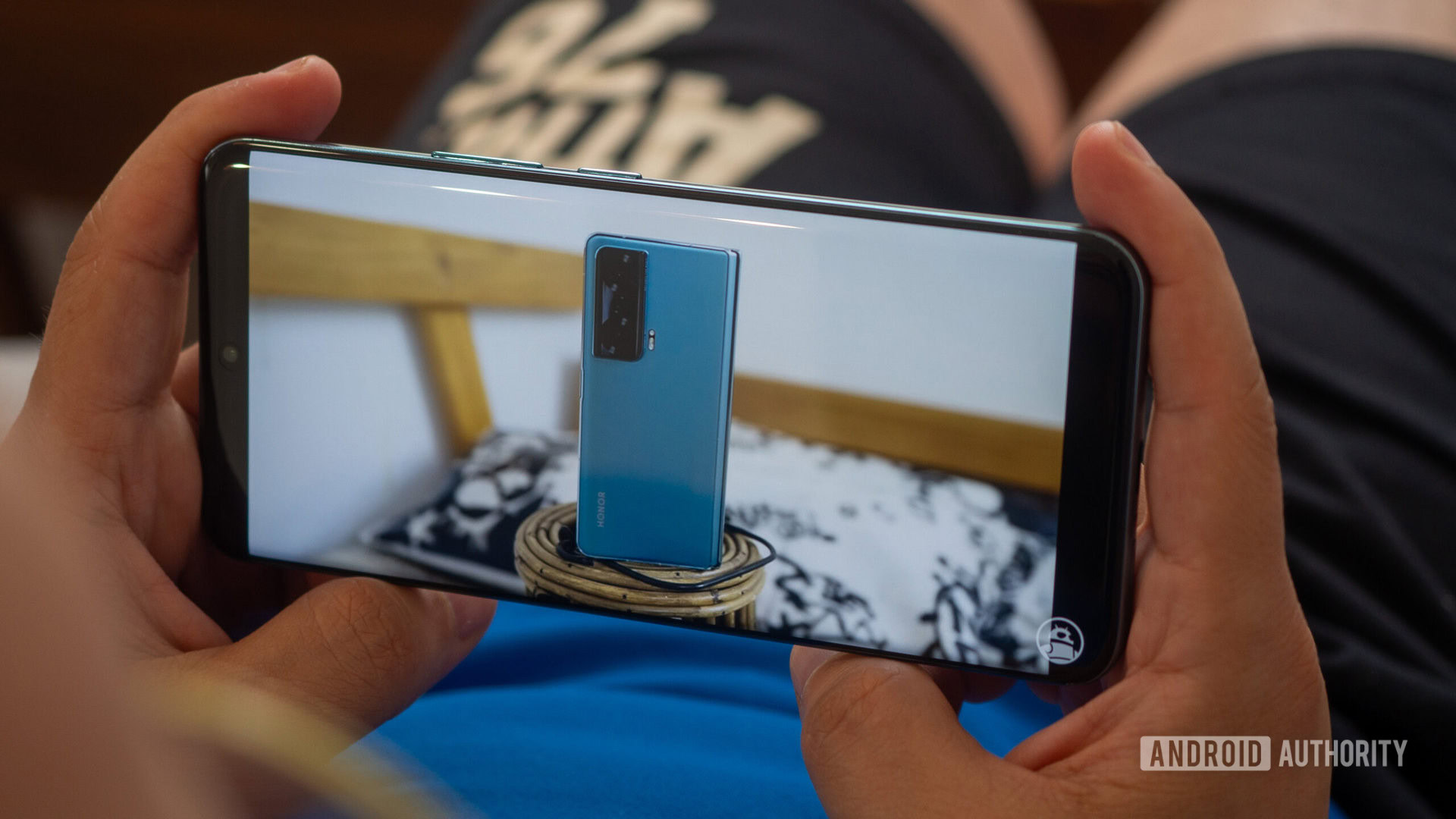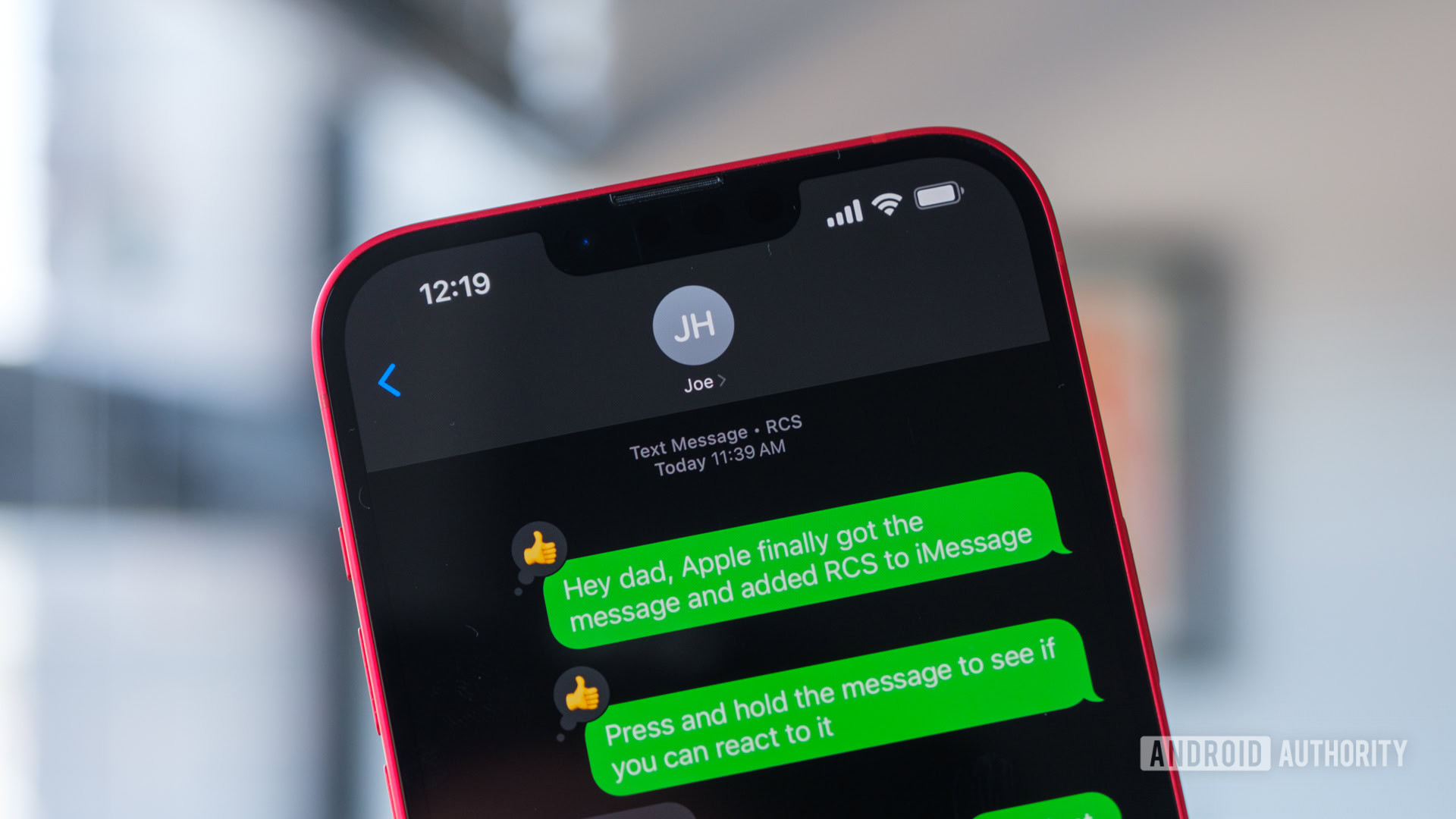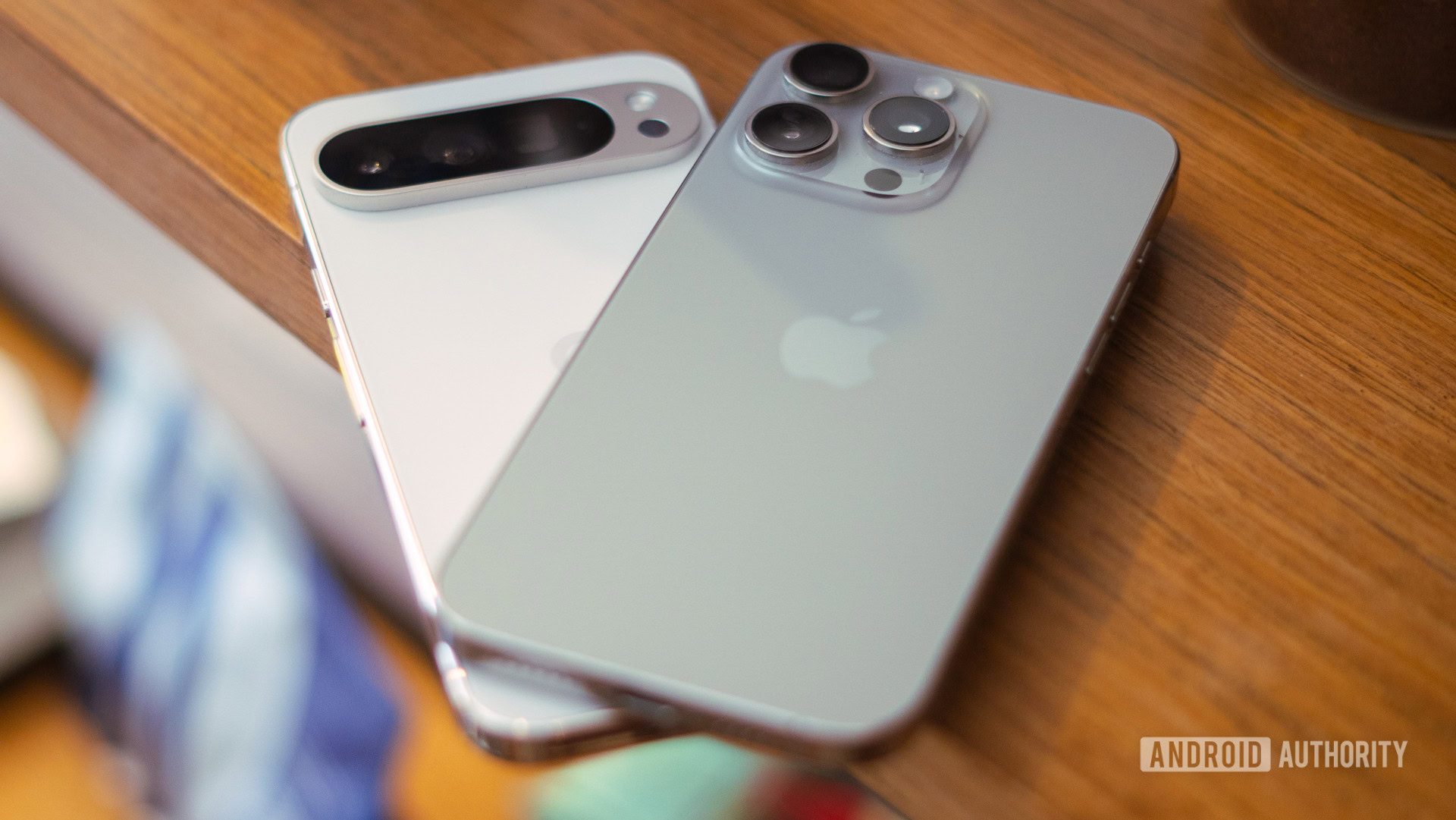Affiliate links on Android Authority may earn us a commission. Learn more.
Should phones be banned from schools? No, the reality is more complicated than that
December 1, 2024

While the US government hasn’t done much at the federal level to ban or limit smartphones in schools, many schools have developed policies or enacted bans of their own. A few states have even passed some form of school phone ban, including California, Florida, Indiana, Louisiana, and a few others. The extent to which these bans limit use varies from state to state. As a father of three, including one teenager, I actually support the idea of phone bans in schools — but only to a point.
Do you think phones should be banned from schools?
Why it’s important to limit phone use during school hours

When I was a kid, the rule of thumb was that if you brought something to school that distracted from learning, you’d lose it for the rest of the day. I didn’t always agree with this policy, of course. Like others my age, I rebelled in little ways, such as sneaking out my Gameboy during lunch to battle friends in Pokemon. By the time I got to high school, mobile phones were reasonably common, but using them in class or even the halls wasn’t something you’d get away with.
Yes, I’ve just dated myself. The truth is, the situation in schools today is much more complicated, as the smartphone is a far greater potential distraction. This one simple device is a television, a gaming system, a social tool, and so much more.
There are many ways in which a phone can distract. Social media can spark conflicts and other issues that disrupt the educational process. YouTube is a tempting alternative to listening to an important lecture. Chatting with your friends is much more entertaining than Algebra work. The list goes on.
It’s pretty clear that a tool that grants instant dopamine rushes would interfere with learning for many students. At the same time, simply taking phones away or banning them outright doesn’t truly address the problem. It also removes some of the positive aspects of phone access.
A full-out ban ignores the potential benefits of phone access

It’s easy to say that this distraction should be removed because it hinders learning. But the reality is that phones have become deeply ingrained in our lives, especially for today’s teens.
I believe there are valid reasons why a student should have access to their phone. For someone like my daughter, for example, having a phone is crucial for tracking her type-1 diabetes. Granted, medical needs would likely be exempt from any ban, but beyond that, there are other reasons, like communicating with family.
Phones are ingrained into modern life in ways that make a full-out ban impractical for many.
Some argue that parents should only contact students directly through the school’s phone number and only for important emergencies, but I disagree. There are times I’ll text my daughter while she’s at school to ask simple questions like what she’d prefer for dinner or whether she wants to be picked up early before archery practice. I’ll also sometimes send her words of encouragement before a big test she’s stressed about.
I try to time these during any free periods she has and I don’t expect her to reply right away, just when she has a free moment. These small interactions help her feel calmer and more connected, which can benefit her stress levels and mental health.
For parents who share joint custody over their kids, phones are especially important for coordinating pickups and other activities. Texting these details is much less disruptive than calling the school and pulling a student out of class, for instance. Students may also have shared family calendars that remind them of upcoming events they may want or need to check before the end of the school day.
There are even practical, school-related reasons. A lot of school communication now happens online, and while students have access to tablets or laptops, sometimes a phone is just a faster, easier way to send a quick message, do some quick research, check school emails, or look up a simple fact.
I believe partial bans and stricter limits are the answer

I personally feel that full-on bans that require phone check-ins when entering the school are a bit too extreme. That said, allowing students to whip out their phones whenever they want is an even worse idea.
So what’s the solution? Whether this is at the school, state, or federal level, schools need clearer phone use policies with strictly enforced rules. Ideally this would include dubbing some locations as “Banned Zones.” This would include places like hallways, where congestion is already problematic, and phones just add to the chaos. On the opposite side of the coin, schools could also make clear free zones where phone use is accepted. This could include places like the commons area during lunch, or it could be time-based free zones.
For example, maybe all classes allow free use of phones for the last 15 minutes of a study hall or for the last 5 minutes before the bell rings for every class that isn’t actively in the middle of instruction. Let’s be honest, this is usually when people have finished up their lessons and any accompanying homework, and so people inevitably end up talking or doing their own thing anyhow. This is the perfect time to bring out your phone to check messages or look up something.
What really matters, though, is enforcement. For example, the school system where my daughter goes to high school has only recently started really cracking down on existing rules around dress codes. Students were basically showing up in clothing that was a dramatic violation of the code, and no one was doing anything. Once the school created clearer policies for the students and teachers on enforcement and what happens if you break the rules, things improved. Sure, there are still students who abuse the code and end up sent home, but it happens a lot less than it did just a few years earlier.
A lack of clear rules and enforcement is part of the problem.
The same thing is happening in many schools around phone use policies, including my daughter’s. Thankfully, our school is slowly getting better at enforcing this, too, though the rules remain a bit vague. A quick look around places like the Reddit Education subchat makes it clear this is a common problem. Some students have become emboldened and don’t think twice about breaking the rules around dress codes or even fully streaming a movie in the middle of class. Again, making clear rules won’t stop them all, but it will empower teachers by giving them clear steps for how to handle violations.
What kind of enforcement should be in place? That’s likely a larger argument than the scope of this article, but at a minimum, there should be consequences that include taking the phone away until the end of class or the end of the day, or even more extreme actions like in-school or out-of-school suspensions for repeat violators.
Now, I understand that, even with the clearest rules, students will still likely take out their phones in the bathroom or quickly while they visit their lockers. Nonetheless, this would be a marked improvement over what’s currently happening in many schools.